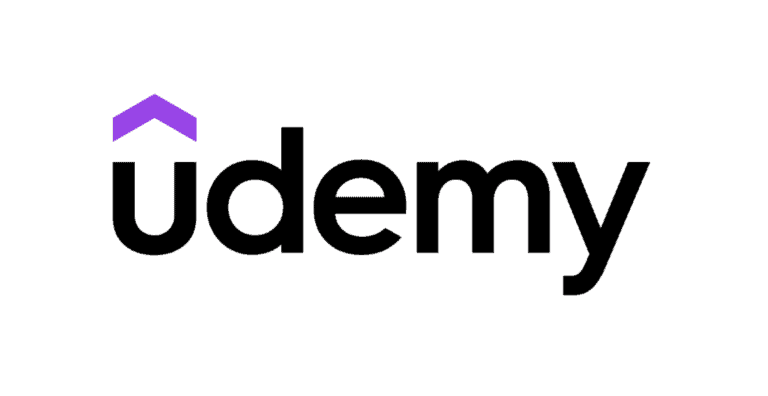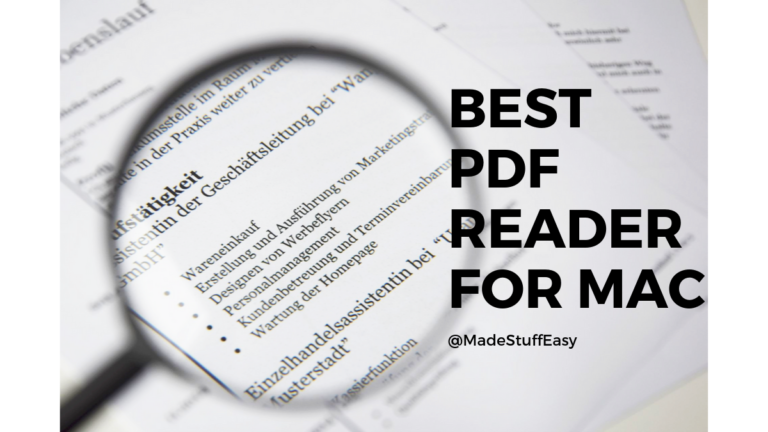In today’s digital age, social media isn’t just for sharing personal updates or cat videos; it’s a vital platform for businesses to increase visibility, engage with customers, and drive sales.
Different social media sites offer various advantages, similar to email marketing software, depending on your business’s nature and target audience.
Why to Consider Social Media to Grow Your Business
In the digital age, social media platforms have emerged as pivotal tools for business growth. The effectiveness of social media marketing lies in its ability to reach vast audiences and build a robust social media presence. Here are five compelling reasons why businesses should leverage social media platforms:
- Expansive Reach: Social media platforms provide access to a global audience. With billions of users on popular social media platforms, businesses have the opportunity to reach a diverse and extensive customer base. This reach is unparalleled compared to traditional marketing channels.
- Enhanced Brand Visibility: A solid social media presence on multiple platforms increases brand visibility. Businesses can showcase their products or services to a broader audience through social media. This visibility is crucial in building brand recognition and loyalty.
- Cost-Effective Marketing: One of the most significant advantages of social media platforms is the cost-effectiveness of the marketing strategies. Social media marketing offers a more affordable way to reach potential customers than traditional advertising, making it an ideal business platform for small and medium-sized enterprises.
- Targeted Advertising: Social media platforms offer advanced targeting options, allowing businesses to reach the right social media platform audience. Through tailored marketing strategies, companies can focus on demographics most likely interested in their products or services, ensuring a higher return on investment.
- Customer Engagement and Feedback: Social media sites provide a unique opportunity for businesses to engage with their customers directly. This interaction fosters a sense of community and loyalty, encouraging repeat business. Additionally, feedback obtained through social media can be invaluable in refining products and services.
In conclusion, integrating social media into your marketing strategy is not just a trend; it’s a powerful tool for business growth. By choosing the best social media platforms that align with your target audience and business goals, you can effectively expand your reach, enhance your brand, and build a more robust online presence.
How to Choose the Right Social Media Platform for Your Business
Selecting the appropriate social media platform is critical for any business on an online marketing journey. With many options available, it’s essential to identify the best social media platforms that align with your business’s needs and goals. Here are four key points to consider:
Understand Your Audience
The first step in choosing the right social media platform is understanding where your target audience spends their time. Different platforms attract different demographics. For example, a visual platform like Instagram appeals to a younger, visually oriented audience, whereas LinkedIn caters to professionals seeking business connections. Assessing the monthly active users and the demographic profiles of these platforms can guide you in choosing the one that best matches your target audience’s preferences.
Define Your Marketing Goals
Each social media platform offers unique features and benefits. For instance, Facebook Messenger can be an excellent tool for customer service and direct sales, while Instagram and Pinterest are ideal for brands relying heavily on visuals. Identify what you want to achieve with your social media channels – brand awareness, lead generation, or customer engagement – and select platforms that best facilitate these goals.
Consider the Type of Content You Create
The nature of your content should influence your choice of platform. Platforms like Instagram or Pinterest are necessary if your content is visually driven. YouTube remains a popular social media platform for video content, while Twitter and Facebook are excellent for short, engaging text-based updates. It’s also worth exploring other social media platforms, just as a few examples, to see if they align with your content.
Evaluate Resources and Commitment
Managing media platforms for business requires time and resources. Consider the effort you can realistically put into managing and creating content for these platforms. Some platforms demand constant engagement and content updates, which might be challenging for small businesses with limited resources. It’s better to be effectively present on a few platforms than to spread yourself too thin across many.
Choosing the right social media platform for your business involves carefully evaluating your audience, marketing goals, content type, and resource availability. By considering these factors, you can select the most suitable platforms to support your online marketing strategies effectively and help you connect with your audience more effectively.
Let’s delve into the top social media sites for business and see how they can benefit you:
Best Social Media Apps for Small Business
1. Facebook

- Overview: With over 2.8 billion monthly active users, Facebook offers businesses an enormous potential audience.
- Best For: Brand awareness, customer engagement, advertising, and customer support through Messenger.
Facebook is invaluable for small businesses due to its vast global audience, offering unparalleled reach.
The platform’s targeted advertising ensures marketing budgets hit the right demographics, optimizing expenditure. Facebook fosters two-way communication, allowing businesses to engage and build customer rapport.
Its robust analytics provide insights, guiding marketing refinement. The platform’s diverse content options—videos to stories—let businesses creatively showcase their offerings.
Additionally, features like Facebook Shop transform pages into direct sales channels, while integrations with platforms like Instagram amplify marketing efforts.
2. Instagram

- Overview: A visually-driven platform, Instagram is perfect for businesses that rely on images, such as fashion, food, or travel.
- Best For: Showcasing products, behind-the-scenes looks, influencer collaborations, and advertising with Stories or Reels.
With its visual-centric approach, Instagram resonates with the consumer’s desire for engaging multimedia content.
Its Stories, Reels features provide diverse ways for businesses to showcase products and behind-the-scenes glimpses.
The platform’s targeted advertising capabilities ensure promotional content reaches the ideal audience. Instagram’s influencer collaborations can boost brand visibility and credibility. Features like “Shop Now” allows direct product purchases, enhancing sales potential.
Moreover, seamless integration with Facebook amplifies cross-platform marketing, making Instagram a pivotal tool for small businesses.
3. YouTube

- Overview: As the second-largest search engine after Google, YouTube is essential for businesses utilizing video marketing.
- Best For: Product tutorials, behind-the-scenes looks, webinars, brand stories, and vlogs.
YouTube’s vast global audience offers small businesses unparalleled visibility and reach.
As a video-centric platform, it aligns with consumers’ preference for engaging visual content. With their targeting options, YouTube ads ensure businesses achieve their desired demographics.
Channels provide a centralized hub for brands to build communities and foster loyalty.
The platform’s analytics offer insights into viewer behavior, guiding content strategy.
Collaborations with popular YouTubers can elevate brand awareness, and features like clickable product links within videos can further drive sales and conversions.
4. Pinterest

- Overview: A platform about discovery, Pinterest allows businesses to showcase their products and services visually.
- Best For: Brands in design, fashion, home decor, food, and crafts. It is ideal for driving website traffic through pins.
Pinterest’s visually rich platform taps into users’ inspirations and aspirations, making it ideal for product discovery. Its demographic, comprised of planners and shoppers, offers businesses a ready-to-buy audience.
The “Pin” format showcases products in lifestyle contexts, enhancing appeal.
Boards allow businesses to segment and target specific niches or trends. Promoted Pins boost visibility, driving more traffic to websites. Detailed analytics provide insights on pin performance and user engagement.
Moreover, the platform’s “Shop the Look” feature seamlessly bridges the gap between inspiration and purchase for users.
5. LinkedIn

- Overview: Touted as the social network for professionals, LinkedIn is the go-to platform for B2B marketing and professional networking.
- Best For: Job postings, company updates, professional content sharing, B2B marketing, and networking.
LinkedIn, the premier professional network, offers businesses a unique B2B marketing environment.
Its platform targets professionals and is ideal for services, partnerships, and recruitment.
Company pages provide a space to highlight achievements, products, and services. With precise job titles and industry targeting, LinkedIn’s ad solutions optimize campaign effectiveness.
Rich content types, from articles to webinars, facilitate thought leadership and brand authority.
The platform’s robust analytics provide engagement and reach insights. Additionally, its networking capabilities foster meaningful industry connections and collaborations.
6. Twitter (now X)

- Overview: Known for its real-time updates, Twitter is great for businesses looking to engage directly and quickly with their audience.
- Best For: Sharing news, customer engagement, brand updates, and real-time support.
Twitter’s real-time feed allows businesses to tap into current trends and conversations, boosting visibility.
Its concise content format fosters direct and authentic engagement with audiences. Hashtag campaigns can amplify brand messages and create viral moments.
Twitter Ads, with tailored targeting, enhance reach to potential customers. The platform is ideal for customer service, allowing swift public or private responses. Analytics on Twitter offers valuable insights into audience behavior and content performance.
Moreover, partnerships with influencers or retweet campaigns can further extend brand reach and resonance.
7. TikTok

- Overview: A platform that rose to meteoric fame with short, engaging video content. It’s trendy among Gen Z.
- Best For: Brands aiming to engage younger audiences, viral challenges, product showcases, and influencer collaborations.
TikTok’s explosive growth caters to a younger, engaged audience, offering businesses a fresh market segment.
Its short, catchy video format aligns with modern consumers’ preference for quick, entertaining content. The platform’s algorithm promotes organic reach, giving even small brands the chance for viral moments.
Challenges and hashtag campaigns can amplify engagement and brand awareness.
TikTok Ads offer creative solutions to promote products or services.
The app’s duet and collaboration features foster community interaction and influencer partnerships. Plus, in-app shopping links further bridge the gap between discovery and purchase.
8. Snapchat

- Overview: Known for its temporary content, Snapchat is another platform popular with younger audiences.
- Best For: Flash sales, behind-the-scenes content, limited-time offers, and influencer takeovers.
Snapchat’s immersive and ephemeral content captures the attention of a young, dynamic audience.
The platform’s Stories and Filters allow businesses to showcase their brand creatively and interactively. Geofilters offer location-specific promotions, ideal for local businesses.
With their full-screen format, Snap Ads ensure high user engagement and recall.
The platform’s AR capabilities provide innovative marketing opportunities, from virtual try-ons to interactive experiences—insights from Snapchat’s analytics guide content and campaign optimizations.
Furthermore, collaborations with Snapchat influencers can bolster brand reach and resonance among target demographics.
8. Reddit

- Overview: Dubbed “the front page of the internet,” Reddit is a collection of communities based on interests.
- Best For: Engaging with niche communities, hosting AMAs (Ask Me Anything sessions), and gaining insights on customer feedback.
Reddit, dubbed “the front page of the internet,” offers niche communities where businesses can engage in genuine conversations.
Subreddits cater to specific interests, allowing businesses to target tailored audiences. AMA (Ask Me Anything) sessions foster direct interaction and trust-building with users.
Reddit Ads can be precisely targeted based on interests and communities. Organic, valuable content can gain significant traction, driving traffic and awareness.
The platform’s upvote system ensures quality posts get visibility. Moreover, insights from community discussions can guide product development and brand positioning.
10. Clubhouse

- Overview: An audio-only social platform where users can join rooms and discuss various topics.
- Best For: Networking, brand building, discussions, and tapping into industry trends and insights.
Clubhouse, the audio-only social platform, fosters deep, meaningful conversations in real time.
Rooms dedicated to specific topics let businesses tap into niche communities and discussions.
Hosting or participating in rooms establishes thought leadership and brand authority. Direct interactions with audiences can build trust and personal connections. The platform’s invite-only nature ensures a curated, engaged user base.
Collaborations with influencers or industry leaders on Clubhouse can elevate brand presence.
Furthermore, receiving feedback or hosting Q&A sessions provides valuable insights, helping businesses refine offerings and strategies.
How to Manage Social Media Apps Efficiently
Sometimes, having so many apps and managing them simultaneously makes our productivity a little less; we have provided some of the best ways to manage all social media accounts efficiently.
Centralize with a Social Media Management Tool
- Overview: Tools like Hootsuite, Buffer, and Sprout Social allow you to schedule posts, track social metrics, and oversee multiple accounts from a single dashboard.
- Benefits: Reduced app-switching, consistent posting schedules, and simplified analytics tracking.
Prioritize Notifications
- Overview: Tailor the notifications you receive from each social media app. Focus on the most essential alerts to avoid constant interruptions.
- How-To: Dive into each app’s settings and refine your notification preferences. Consider only keeping notifications for direct messages, mentions, or other high-priority engagements.
Organize with Folders
- Overview: Group all your social media apps into a single folder on your phone or computer.
- Benefits: A tidier interface, quicker access, and a reduced temptation to check non-social apps.
Limit Your Time
- Overview: Use digital well-being tools to set daily limits for each social media app.
- How-To: Platforms like iOS and Android have built-in screen time or digital well-being settings. Third-party apps like ‘Stay Focused’ can also help regulate your usage.
Regularly Audit Your Apps
- Overview: Periodically review which social media platforms you’re using and consider deleting ones that aren’t beneficial.
- Benefits: Save device storage, reduce distractions, and focus on platforms that align more with your goals.
Bookmark Essential Pages
- Overview: Bookmark frequently visited pages, groups, or profiles for quicker access.
- Benefits: Efficient navigation and reduced time searching for important content.
Draft Posts Offline
- Overview: Use note-taking apps or dedicated writing
Conclusion
The right social media platform for your business largely depends on your target demographic, the nature of your products or services, and your overall business goals.
It’s essential to understand where your audience spends their time and focus your efforts there for the most effective engagement. Remember, it’s not about being on every platform; it’s about being on the right platforms and leveraging them effectively.
Related: Best Proposal software list
FAQs
⭐️ Which social media platform is best for a small business starting?
It depends on the business’s target audience and goals. Platforms like Facebook and Instagram offer broad reach and versatile content options, making them suitable for many businesses.
⭐️ How do I decide which platform suits my business niche?
Research where your target demographic spends most of their time and the nature of the content they engage with. For instance, B2B businesses might gravitate towards LinkedIn, while visually-driven brands prefer Instagram or Pinterest.
⭐️ How frequently should a small business post on social media?
Consistency is key. While daily posts can boost engagement, the quality of content must remain high. A frequency of 3-4 times a week is often recommended to start.
⭐️ Is it necessary to use paid advertising on social media for my small business?
While organic reach is valuable, paid advertising can amplify visibility, especially when targeting specific demographics or launching new products.
⭐️ Should I be on every social media platform?
It’s more effective to focus on a few platforms where your target audience is most active and where you can maintain consistent, high-quality engagement.
⭐️ How can I encourage more engagement on my posts?
Use various content types, ask questions, conduct polls, and respond promptly to comments and messages. Engaging content that resonates with your audience or provides value will naturally encourage more interactions.
Follow us on Facebook and Twitter for the latest tech tutorials and software deals.





